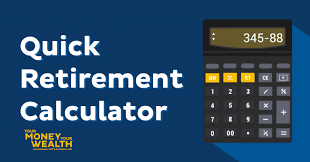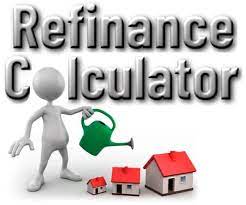Are you struggling to decide between renting and buying a house? Our comprehensive guide offers insights on the Rent Vs Buy Calculator (Rent or Buy House Calculator) and Buy vs Rent Analysis . Discover the benefits and usage of these essential tools to make an informed decision and find the perfect home for your needs.Buying vs Renting a House Calculator will help you to clear all of your confusions.
Rent vs Buy Calculator
Home Purchase Details
Rent Details
| Staying Length | Average Buying Cost (Monthly) | Average Buying Cost (Annual) | Average Renting Cost (Monthly) | Average Renting Cost (Annual) |
|---|
Renting vs. buying
Deciding whether to rent or buy a home is a major financial decision that can have a significant impact on your future. There are many factors to consider when making this choice, including your lifestyle, financial situation, and long-term goals. In this article, we’ll explore the pros and cons of renting vs. buying and help you determine which option is best for you.
The Pros and Cons of Renting
Renting a home has its advantages and disadvantages. Here are some of the key pros and cons to consider:
Pros of Renting:
- Flexibility: One of the biggest advantages of renting is the flexibility it offers. If you have a job that requires you to move frequently or if you simply enjoy a change of scenery, renting allows you to do so without the hassle of selling a home.
- Lower Upfront Costs: Renting a home typically requires a lower upfront cost compared to buying a home. Renters typically only need to pay first and last month’s rent and a security deposit, whereas homebuyers need to come up with a down payment and closing costs, which can be a significant amount of money.
- No Maintenance Costs: When you rent, your landlord is responsible for the maintenance and repairs of the property, which can save you a lot of money and hassle.
Cons of Renting:
- Lack of Equity: One of the downsides of renting is that you don’t build equity in the property. The money you pay in rent is gone forever and does not contribute to your net worth.
- Limited Control: Renters have limited control over the property they live in. You may not be able to make changes or upgrades to the property without the landlord’s approval.
- Rent Increases: Renters are subject to rent increases when their lease is up for renewal. This can make it difficult to plan your budget and could result in you having to move if the rent becomes too high.
The Pros and Cons of Buying
Buying a home also has its advantages and disadvantages. Here are some of the key pros and cons to consider:
Pros of Buying:
- Building Equity: One of the biggest advantages of buying a home is that you are building equity in the property. Every mortgage payment you make is contributing to your net worth.
- Control Over Property: When you own a home, you have complete control over the property. You can make changes and upgrades as you see fit without needing anyone’s approval.
- Potential for Appreciation: Homes typically appreciate in value over time, which means that if you sell your home down the line, you could make a profit.
Cons of Buying:
- Higher Upfront Costs: Buying a home requires a significant upfront investment, including a down payment and closing costs. This can be a barrier to entry for some potential homebuyers.
- Maintenance Costs: When you own a home, you are responsible for all maintenance and repair costs. This can add up over time and can be a significant expense.
- Less Flexibility: Owning a home ties you down to a specific location, which can limit your flexibility if you need to move for work or personal reasons.
Making the Decision: Renting vs. Buying
So, how do you decide whether renting or buying is right for you? Here are some key factors to consider:
- Your Financial Situation: If you have a stable income and can afford the upfront costs of buying a home, it may be a good investment for your financial future. If you’re not in a position to buy, renting may be the better option.
How do we calculate the costs of renting and buying?
We’ll explore the costs of renting and buying and provide you with the information you need to make the best choice for your financial situation.
Calculating the Costs of Renting
When you’re renting a home, there are several costs to consider. Here are the most common expenses you’ll need to factor in:
Monthly Rent: This is the most obvious cost of renting. Your monthly rent payment will vary depending on the size and location of the property, as well as the local rental market.
Security Deposit: Landlords typically require a security deposit that covers any damages to the property beyond normal wear and tear. This deposit is usually equal to one month’s rent but can be higher depending on the landlord’s requirements.
Utilities: Depending on your lease agreement, you may be responsible for paying for utilities such as electricity, gas, water, and internet/cable.
Renter’s Insurance: While not always required, it’s highly recommended that renters purchase renter’s insurance to protect their personal belongings in case of theft, fire, or other types of damage.
Move-in Costs: These can include costs for moving services, cleaning, and any necessary repairs or upgrades.
Calculating the Costs of Buying
Buying a home has its own set of expenses, many of which are upfront costs. Here are the most common expenses you’ll need to factor in:
Down Payment: This is the amount of money you’ll need to put down as a percentage of the home’s purchase price. The size of your down payment will depend on your lender’s requirements and your personal financial situation.
Closing Costs: These are the fees associated with closing the sale of a home, including attorney fees, appraisal fees, title search fees, and more. These costs typically range from 2% to 5% of the home’s purchase price.
Mortgage Payment: Your monthly mortgage payment will depend on the size of your loan, the interest rate, and the term of your loan.
Property Taxes: Property taxes are based on the value of your home and can vary depending on where you live.
Homeowner’s Insurance: You’ll need to purchase homeowner’s insurance to protect your property and personal belongings in case of damage or theft.
Maintenance and Repairs: When you own a home, you’re responsible for all maintenance and repair costs, including things like roof repairs, plumbing issues, and appliance replacements.
Calculating the Total Costs
To determine the total costs of renting and buying, you’ll need to consider both the upfront costs and the ongoing costs over time. For example, if you plan to rent for five years, you’ll need to add up the total cost of rent, utilities, renter’s insurance, and move-in costs over that time period. If you plan to buy a home, you’ll need to factor in the down payment, closing costs, monthly mortgage payments, property taxes, homeowner’s insurance, and maintenance and repair costs over the course of your mortgage term.
When making the decision to rent or buy, it’s important to consider your personal financial situation, lifestyle, and long-term goals. While buying a home may seem like the better investment in the long run, it may not be the best choice for everyone. By calculating the costs of both renting and buying, you can make an informed decision that fits your budget and lifestyle.
Should I buy a house? More factors to consider
we’ll explore more factors to consider when deciding whether or not to buy a house.
- Your Financial Situation
Before buying a house, it’s important to take a close look at your financial situation. Consider factors such as your income, debt, credit score, and savings. You’ll need to have a good credit score and a stable income to qualify for a mortgage. You’ll also need to have enough savings to cover the down payment, closing costs, and any unexpected expenses that may arise.
- The Real Estate Market
The state of the real estate market can have a significant impact on your decision to buy a house. If the market is hot, you may have to compete with other buyers and pay a higher price for a home. On the other hand, if the market is slow, you may be able to find a good deal on a home. It’s important to do your research and keep an eye on market trends before making an offer on a home.
- Your Lifestyle
Your lifestyle is another important factor to consider when deciding whether or not to buy a house. If you enjoy traveling frequently or have a job that requires you to move frequently, homeownership may not be the best option for you. On the other hand, if you’re looking for stability and a sense of permanence, buying a house may be a good fit for you.
- The Location
The location of the home is another important factor to consider. Consider factors such as the school district, crime rate, access to amenities, and proximity to your work. It’s important to find a location that fits your lifestyle and meets your needs.
- Maintenance and Repairs
Owning a home comes with a number of responsibilities, including maintenance and repairs. When you own a home, you’re responsible for all maintenance and repair costs, including things like roof repairs, plumbing issues, and appliance replacements. It’s important to factor in these costs when deciding whether or not to buy a home.
- Your Long-Term Goals
Your long-term goals should also be considered when deciding whether or not to buy a house. Are you planning on staying in the home for a long period of time? Do you want to use the home as an investment property? It’s important to have a clear understanding of your long-term goals and how homeownership fits into them.
Buying a house is a major decision that should be carefully considered. By taking into account factors such as your financial situation, the real estate market, your lifestyle, the location, maintenance and repairs, and your long-term goals, you can make an informed decision that fits your needs and goals. Ultimately, the decision to buy a house should be based on your personal circumstances and what is best for you and your family.
What to Expect When Buying a Home
There are many steps involved in buying a home, from finding the right property to closing the deal. In this article, we’ll explore what to expect when buying a home and provide you with a guide for navigating the home buying process.
- Determine Your Budget
Before you begin your search for a home, it’s important to determine your budget. Consider your income, expenses, and any debts you may have. You’ll need to have a good credit score and enough savings to cover the down payment, closing costs, and any unexpected expenses that may arise.
- Get Pre-Approved for a Mortgage
Once you’ve determined your budget, it’s important to get pre-approved for a mortgage. This will give you a better idea of how much you can afford to spend on a home and will also show sellers that you’re a serious buyer. You’ll need to provide the lender with financial information such as your income, assets, and debts.
- Find a Real Estate Agent
Working with a real estate agent can make the home buying process much easier. A good agent can help you find properties that fit your needs and budget, negotiate with sellers, and guide you through the closing process. Look for an agent who has experience working with buyers in your price range and who is familiar with the local real estate market.
- Begin Your Home Search
With your budget and pre-approval in hand, it’s time to begin your home search. Work with your real estate agent to find properties that fit your needs and budget. It’s important to consider factors such as location, size, and amenities when choosing a home.
- Make an Offer
Once you’ve found a home you’re interested in, it’s time to make an offer. Your real estate agent can help you negotiate with the seller and make sure that all necessary paperwork is completed. If your offer is accepted, you’ll need to put down a deposit, known as earnest money.
- Complete a Home Inspection
Before closing on the sale, it’s important to have a home inspection completed. This will help identify any potential problems with the property and give you a better idea of what repairs may be needed. If any issues are found, you can negotiate with the seller to have them fixed or adjust the sale price accordingly.
- Close the Deal
Once the home inspection is completed, it’s time to close the deal. This involves signing a number of legal documents, paying any remaining fees and costs, and transferring ownership of the property to you. Your real estate agent and mortgage lender will guide you through this process.
Buying a home can be a complex process, but it doesn’t have to be overwhelming. By following these steps and working with experienced professionals, you can navigate the home buying process with confidence. Remember to take your time, do your research, and make informed decisions that fit your needs and budget. With patience and persistence, you can find the home of your dreams and enjoy the many benefits of homeownership.
What to Know When Renting
However, there are some important things to keep in mind when renting a home. In this article, we’ll explore what to know when renting and provide you with a guide for navigating the rental process.
- Determine Your Budget
Before you begin your search for a rental home, it’s important to determine your budget. Consider your income, expenses, and any debts you may have. You’ll need to have a good understanding of how much you can afford to pay each month for rent and utilities.
- Research Your Options
There are many options when it comes to renting a home, from apartments to single-family homes. Consider factors such as location, size, and amenities when choosing a rental property. Look for properties that fit your budget and your lifestyle.
- Understand Your Lease Agreement
When renting a home, you’ll need to sign a lease agreement with your landlord. This agreement outlines the terms of your rental, including the rent amount, security deposit, and any rules and regulations. It’s important to read and understand your lease agreement before signing it.
- Know Your Rights and Responsibilities
As a renter, you have certain rights and responsibilities. Your landlord is responsible for maintaining the property and making any necessary repairs. You are responsible for paying rent on time and following the rules outlined in your lease agreement. It’s important to understand your rights and responsibilities as a renter to avoid any issues or misunderstandings.
- Plan for Move-In Costs
There are several move-in costs associated with renting a home, including the security deposit, first month’s rent, and any necessary repairs or upgrades. It’s important to budget for these expenses and have a plan in place for when unexpected expenses arise.
- Consider Renter’s Insurance
While not always required, it’s highly recommended that renters purchase renter’s insurance to protect their personal belongings in case of theft, fire, or other types of damage. Renter’s insurance is typically affordable, with average monthly premiums ranging from $10 to $30.
- Communicate with Your Landlord
Effective communication with your landlord is key when renting a home. If you have any issues or concerns, it’s important to bring them up with your landlord as soon as possible. This can help prevent any misunderstandings and ensure that any necessary repairs or maintenance are taken care of in a timely manner.
Renting a home can be a great option for many people, but it’s important to understand the rental process and what to expect. By following these steps and keeping these tips in mind, you can navigate the rental process with confidence and find a rental property that fits your needs and budget. Remember to communicate effectively with your landlord, understand your rights and responsibilities, and plan for move-in costs to ensure a successful rental experience.
FAQ
Q: Is it cheaper to rent or buy a home?
A: It depends on several factors, including the cost of homes in your area, your financial situation, and your long-term goals. In some cases, renting may be cheaper than buying, while in other cases, buying may be more affordable over the long term.
Q: What are the benefits of renting a home?
A: Renting a home provides more flexibility than owning a home. You can easily move to a new location without having to worry about selling your home. Renting also frees you from the responsibility of maintaining the property and making any necessary repairs.
Q: What are the benefits of buying a home?
A: Buying a home provides a sense of stability and permanence that renting does not. Homeownership also allows you to build equity in the property and potentially earn a return on your investment when you sell the home. Additionally, owning a home provides more freedom to make changes and improvements to the property.
Q: How much should I have saved for a down payment if I want to buy a home?
A: The amount you should have saved for a down payment depends on the price of homes in your area and the lender’s requirements. Generally, a down payment of 20% of the home’s purchase price is recommended to avoid private mortgage insurance (PMI).
Q: What are the costs associated with renting a home?
A: The costs associated with renting a home typically include rent, utilities, and any additional fees required by the landlord or property management company. Renters may also choose to purchase renter’s insurance to protect their personal belongings.
Q: What are the costs associated with buying a home?
A: The costs associated with buying a home include the down payment, closing costs, monthly mortgage payments, property taxes, homeowner’s insurance, maintenance and repair costs, and HOA fees (if applicable).
Q: How long should I plan to stay in a home before buying?
A: The amount of time you should plan to stay in a home before buying depends on your long-term goals and financial situation. Generally, it’s recommended to stay in a home for at least five years to make homeownership worthwhile.
Q: What are the tax benefits of owning a home?
A: Homeowners may be able to deduct mortgage interest and property taxes on their federal income taxes. This can provide a significant tax benefit for homeowners.

Rent Vs Buy Calculator
Are you trying to decide between renting or buying a house? It’s a major life decision, and with so many factors to consider, it can be quite challenging. To help you make the best choice, we’ve put together this comprehensive guide to Rent Vs Buy Calculator, Buy vs Rent Analysis, Rent or Buy House Calculator, and Buying vs Renting a House Calculator. By the end of this article, you’ll have a better understanding of the usage and benefits of these tools, empowering you to make an informed decision.
Rent Vs Buy Calculator
A Rent Vs Buy Calculator is an online tool designed to help you compare the costs and benefits of renting versus buying a house. By inputting various details, such as your monthly rent, the purchase price of a potential home, and your mortgage interest rate, the calculator can determine which option is more financially advantageous for you.
Benefits of using a Rent Vs Buy Calculator include:
- A personalized analysis based on your financial situation
- A clear understanding of the potential long-term savings of renting vs. buying
- An easy way to compare different housing options
Buy vs Rent Analysis
Buy vs Rent Analysis is a method of evaluating the costs and benefits of renting and buying a house. This analysis takes into account factors such as property appreciation, taxes, maintenance costs, and the potential investment return of renting.
Some benefits of performing a Buy vs Rent Analysis include:
- Identifying the potential for long-term wealth creation
- Comparing different housing markets and their investment potential
- Making more informed decisions about homeownership
Rent or Buy House Calculator
A Rent or Buy House Calculator is a specialized tool that helps you determine whether it’s more financially prudent to rent or buy a house. This calculator takes into account various factors such as down payment, mortgage interest rates, property taxes, insurance, and maintenance costs.
Benefits of using a Rent or Buy House Calculator include:
- A clear comparison of the financial implications of renting and buying
- Identifying the best housing option based on your financial goals
- A better understanding of the costs associated with homeownership
Buying vs Renting a House Calculator
A Buying vs Renting a House Calculator is a comprehensive tool that compares the costs and benefits of buying a house versus renting one. By inputting specific financial details, this calculator provides a side-by-side comparison of the two options, allowing you to make an informed decision.
Some benefits of using a Buying vs Renting a House Calculator include:
- A detailed breakdown of the costs and benefits associated with each housing option
- A better understanding of the long-term financial implications of your decision
- An opportunity to explore various scenarios and their impact on your finances
Conclusion
When it comes to deciding whether to rent or buy a house, having the right tools and information is essential. By using a Rent Vs Buy Calculator, Buy vs Rent Analysis, Rent or Buy House Calculator, and Buying vs Renting a House Calculator, you can make a well-informed decision that aligns with your financial goals and needs. With the help of these tools, you can confidently take the next step towards finding your perfect home.
Legal Notices and Disclaimer
All Information contained in and produced by the ModernCalculators.com is provided for educational purposes only. This information should not be used for any Financial planning etc. Take the help from Financial experts for any Finace related Topics. This Website will not be responsible for any Financial loss etc.





